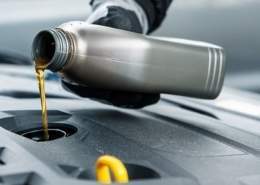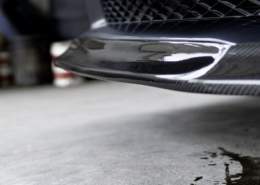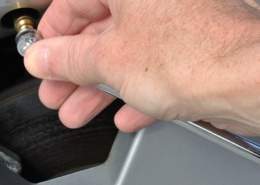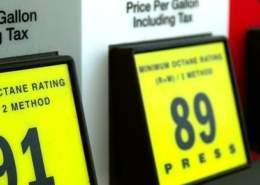The Ultimate Guide to Car Maintenance: How to Keep Your Car Running Like New
Learn basic car care tips to extend your vehicle’s life in our ultimate maintenance guide.
Simple Car Maintenance Strategies
Maintaining a car isn’t just about ensuring it runs well; it’s also about protecting your investment, staying safe, and making your car last longer.
Regular maintenance is critical to reliable and efficient driving.
Key Takeaways
- Regular Maintenance is Essential: Regular car maintenance is crucial for keeping your vehicle running smoothly, enhancing safety, and prolonging its lifespan.
- Check Key Components Frequently: Consistently check vital components like oil, air filters, tires, brakes, and fluids to prevent costly repairs and ensure optimal performance.
- Professional Inspections are Important: Periodic inspections can catch potential issues early and ensure your car receives expert care, keeping it reliable and efficient.
This guide will cover everything you need to know about car maintenance, offering valuable tips and insights to keep your car in great shape.
Whether you’re an experienced driver or new to owning a car, knowing how to maintain it is crucial.
10 Car Maintenance Tips for Keeping Your Vehicle in Top Shape
Keep your car running smoothly and avoid costly repairs with these ten essential car maintenance tips.
Follow these simple steps to maintain your vehicle and ensure it stays in excellent condition.
- Regular Oil Changes: Change the oil every 3,000 to 5,000 miles to keep the engine lubricated and running smoothly.
- Check Tire Pressure: Regularly check and maintain tire pressure to improve fuel efficiency and prevent blowouts.
- Replace Air Filters: Change air filters every 12,000 to 15,000 miles to ensure optimal engine performance and fuel efficiency.
- Inspect Brakes: Regularly check brake pads, rotors, and fluid levels to ensure your braking system works appropriately.
- Test the Battery: Check the battery for corrosion and test its charge to avoid unexpected breakdowns.
- Monitor Fluid Levels: Regularly check coolant, transmission fluid, and power steering fluid to keep your car running smoothly.
- Rotate Tires: Rotate tires every 6,000 to 8,000 miles to promote even wear and extend their lifespan.
- Check Belts and Hoses: Inspect belts and hoses for signs of wear and replace them as needed to prevent breakdowns.
- Maintain the Cooling System: To prevent engine overheating, check the coolant level and flush the system as recommended.
- Clean the Exterior and Interior: Regularly wash and wax the exterior to protect the paint, and clean the interior to maintain the car’s value.
Understanding Car Maintenance
Car maintenance involves regular checks, timely replacements, and thorough inspections to keep your car running well. Proper maintenance can prevent expensive repairs and unexpected breakdowns.
Before you perform any vehicle maintenance, always check your car’s manual for specific recommendations. The manual provides detailed information tailored to your car’s make and model, ensuring you follow the correct procedures and use the right products.
Let’s look at the critical aspects of car maintenance that every car owner should know.
1. The Importance of Regular Oil Changes
Changing your car’s oil regularly is very important for the engine. Oil lubricates the engine’s moving parts, reducing friction and preventing damage. Over time, oil gets dirty and less effective, harming the engine.
Changing your car’s oil every 3,000 to 5,000 miles is best and pretty much standard in the industry. Check your car’s manual for specific recommendations.
2. Checking and Replacing Air Filters
Air filters keep dirt and debris out of the engine, helping it run efficiently. A dirty air filter can lower fuel efficiency and increase emissions.
It’s a good idea to check your air filter every 12,000 to 15,000 miles and replace it if it looks dirty.
3. The Role of Tire Maintenance
Tires are the only part of your car that touches the road, so their condition is critical. Check tire pressure regularly to make sure they are correctly inflated. Underinflated tires can reduce fuel efficiency and increase the risk of blowouts.
Most manufacturers recommend rotating your tires every 6,000 to 8,000 miles to ensure even wear and replacing them when the tread depth is too low.
4. Ensuring Brake System Efficiency
Your car’s brakes are crucial for safety. Regularly check the brake pads, rotors, and fluid levels. Worn brake pads can increase stopping distance and cause brake failure.
Replace brake fluid as your car’s manual recommends, usually every 20,000 to 30,000 miles.
5. Battery Maintenance Tips
Your car’s battery powers the electrical components. Check the battery terminals for corrosion and make sure they are tight. Clean the battery and test its charge regularly.
Most car batteries last 3 to 5 years. Consider replacing it if it’s getting old or shows signs of weakness.
- How to Buy a New Car Below Factory Invoice Price – True dealer cost and the factory invoice price are not the same… dealer cost can be much lower.
- Figure a Fair Profit New Car Offer – How to calculate a fair profit new car offer.
- How to Buy a New Car Online – Not sure where to start? Use my step-by-step guide on how to buy a new car online.
6. Fluid Checks and Replacements
Your car uses vital fluids, like coolant, transmission, and power steering. Checking these fluid levels regularly and topping them up when needed is crucial to keeping your car running well.
- Coolant: Keeps your engine from overheating. Check the coolant reservoir and refill it as needed. Always use the type of coolant recommended in your car’s manual.
- Transmission Fluid: Ensures smooth gear shifts and lubricates the transmission. Check the fluid level and condition regularly. Replace it according to your vehicle’s maintenance schedule.
- Power Steering Fluid: Helps you steer easily. Low fluid can make steering difficult and unsafe. Check the level and top it up with the right type of fluid.
- Brake Fluid: Vital for your car’s braking system. Low or dirty brake fluid can cause brake failure. Check the fluid level and replace it as your car’s manual recommends.
- Engine Oil: Lubricates engine parts, reducing friction and wear. Regular oil checks and changes are crucial. Follow the oil change schedule in your car’s manual.
- Windshield Washer Fluid: Keeps your windshield clean for clear visibility. Check and refill this fluid regularly before long trips or lousy weather.
7. The Importance of Regular Inspections
Have a professional mechanic inspect your car regularly. They can find potential problems before they become significant issues.
Regular inspections should include checking the exhaust system, suspension, and steering components.
8. Maintaining the Cooling System
The cooling system keeps your engine from overheating. Check the coolant level and inspect the radiator and hoses for leaks.
Replace the coolant per your car’s manual to prevent buildup and corrosion.
9. Understanding the Electrical System
The electrical system powers lights, wipers, and other vital parts. Check the wiring and connections regularly.
Ensure all lights are working correctly and fix electrical issues quickly to avoid problems.
10. Proper Care of the Exhaust System
The exhaust system reduces harmful emissions and directs gases away from the engine. Inspect the exhaust system for leaks or damage. A well-maintained exhaust system helps your car run efficiently and meet emission standards.
11. Transmission Maintenance
The transmission allows your car to shift gears smoothly. Check the transmission fluid regularly. Dirty or low fluid can cause gear problems and transmission failure.
Follow your car’s maintenance schedule for fluid replacement.
12. Maintaining the Suspension System
The suspension system makes your ride smooth and stable. Inspect the shocks, struts, and springs for wear. A worn suspension can cause poor handling and tire wear.
Fix suspension issues quickly to keep your ride comfortable and safe.
13. Fuel System Maintenance
The fuel system delivers fuel to the engine. Check the fuel filter and replace it as needed. A clogged filter can reduce engine performance.
Keeping the fuel system clean ensures good combustion and optimal fuel efficiency.
14. The Importance of Belts and Hoses
Belts and hoses are crucial for your car’s operation. Inspect them for wear, cracks, or leaks. Replace any worn belts or hoses to avoid breakdowns.
Follow your car’s manual for timing belt replacement to prevent engine damage.
15. Interior and Exterior Maintenance
Keeping the inside and outside of your car clean is essential for its value.
Clean the interior regularly and wash and wax the exterior to prevent rust and paint damage. Fix any scratches or dents quickly.
Seasonal Car Maintenance Tips
Different seasons require different car care. Check the antifreeze, battery, and tires to winterize your vehicle for optimal performance.
In summer, focus on the cooling system and air conditioning. Seasonal maintenance prevents weather-related issues.
Summer Car Maintenance Tips
- Check the Cooling System: To prevent overheating, ensure your coolant level is adequate and inspect the radiator and hoses for leaks or damage.
- Test the Air Conditioning: Ensure your air conditioning system works appropriately to stay comfortable during hot days.
- Inspect Tires: Check tire pressure and tread depth regularly. Heat can cause tires to overinflate or wear out faster.
- Replace Wiper Blades: Summer storms can be sudden and intense, so ensure your wiper blades are in good condition for clear visibility.
- Clean and Protect the Interior: Use sunshades to protect the dashboard and seats from UV damage and clean the interior to remove debris or dust.
Winter Car Maintenance Tips
- Check the Battery: Cold weather can weaken your battery. Ensure it’s fully charged, and consider replacing it if it’s old.
- Inspect Tires: Ensure your tires have proper tread depth and are inflated to the correct pressure. Consider using winter tires for better traction.
- Test the Heating System: Ensure your heater and defroster work well to keep you warm and maintain clear visibility.
- Check Antifreeze Levels: Ensure your coolant system has the right mixture of antifreeze to prevent the engine from freezing.
- Prepare an Emergency Kit: Include essentials like a blanket, flashlight, ice scraper, shovel, and emergency flares if you get stuck or stranded.
The Role of Professional Car Care Services
Some car maintenance tasks need the expertise of a professional mechanic. While you can handle basic tasks at home, complex issues are best left to trained professionals. Regular inspections and services by a professional can catch problems early and ensure your car gets expert care.
Professional mechanics have the tools and knowledge to diagnose and fix issues that may go unnoticed during routine checks. They can perform advanced diagnostic tests and thorough inspections, covering every aspect of your vehicle, from the brakes and tires to the electrical system and exhaust.
In addition to identifying and fixing problems, professional mechanics provide valuable maintenance services such as:
- Alignment and Balancing: Ensuring wheels are correctly aligned and balanced to improve handling and extend tire life.
- Transmission Servicing: Checking and replacing transmission fluid, inspecting components, and addressing shifting issues.
- Brake Servicing: Inspecting brake pads, rotors, and fluid levels and replacing worn components to ensure proper function.
- Suspension and Steering Repairs: Checking and repairing shocks, struts, and steering components to maintain ride comfort and stability.
DIY Car Maintenance Tips
You can handle several maintenance tasks to keep your car in good condition. These tasks save you money and help you understand your vehicle better.
Here are some of the most common DIY car maintenance tips:
- Change the Oil: Drain old oil, replace the oil filter, and add new oil as specified in your car’s manual.
- Check Tire Pressure: Use a tire pressure gauge to check and inflate tires to the recommended levels.
- Replace Air Filters: Open the air filter box, remove the old filter, and insert a new one.
- Check Fluid Levels: Regularly check coolant, brake fluid, power steering fluid, and windshield washer fluid and top them up as needed.
- Replace Windshield Wipers: Lift the wiper arm, remove the old blade, and attach the new one.
- Inspect Belts and Hoses: Look for wear, cracks, or leaks and replace them if necessary.
- Maintain the Battery: Clean the terminals and check the charge with a voltmeter.
- Change Spark Plugs: Remove old spark plugs and install new ones according to your car’s manual.
- Clean the Interior: Regularly use appropriate cleaners to clean seats, carpets, and the dashboard.
- Check Lights: Ensure all lights are functioning and replace any burnt-out bulbs.
Benefits of Regular Car Maintenance
Regular car maintenance has many essential benefits that keep your vehicle in shape. Here are some key advantages:
- Improves Safety: Regular checks on brakes, tires, lights, and other critical components ensure that your car is safe to drive. Well-maintained vehicles are less likely to have accidents due to mechanical failures.
- Enhances Performance: Keeping your car’s engine, transmission, and other systems in good condition helps it run smoothly and efficiently. You’ll notice better acceleration, handling, and fuel economy.
- Extends Lifespan: Routine maintenance prevents wear and tear from becoming serious problems. By addressing minor issues early, you can avoid significant damage and extend the life of your vehicle.
- Maintains Resale Value: A well-maintained car retains its value better over time. When it’s time to sell or trade-in your vehicle, a comprehensive maintenance history can fetch a higher price.
- Prevents Costly Repairs: Regular maintenance can catch potential problems before they become expensive. For example, changing the oil regularly can prevent engine damage, and checking the coolant can avoid overheating issues.
- Increases Reliability: Consistent care means your car is less likely to break down unexpectedly. This reliability ensures peace of mind, especially on long trips or daily commutes.
- Supports Environmental Responsibility: A well-maintained car runs more efficiently, producing fewer emissions and using fuel more effectively. This is better for the environment and helps reduce your carbon footprint.
Common Car Maintenance Myths
Many myths about car maintenance can lead to unnecessary expenses and misunderstandings. Let’s debunk some common myths and understand the facts to make smarter decisions:
- Myth: You Need to Use Premium Fuel for Better Performance: Many believe premium fuel will improve their car’s performance. However, most cars are designed to run efficiently on regular fuel. Unless your car’s manual explicitly recommends premium fuel, using it is usually an unnecessary expense.
- Myth: You Must Change Your Oil Every 3,000 Miles: While this was true for older cars, modern engines, and advanced oil formulations have extended the oil change intervals. Many vehicles can go 5,000 to 7,500 miles, or even longer, between oil changes. Always follow the oil change intervals recommended in your car’s manual.
- Myth: Warm Up Your Car Before Driving in Cold Weather: It’s a common belief that you must let your car idle to warm up before driving. Modern engines are designed to be driven almost immediately, and idling wastes fuel and increases emissions. Instead, drive gently for the first few minutes.
- Myth: Air Filters Need to be Changed Frequently: While a clean air filter is essential for engine performance, they don’t need to be changed as often as some might think. Checking the air filter every 12,000 to 15,000 miles is usually sufficient, and replacing it if it looks dirty or damaged is adequate.
- Myth: You Should Always Use the Dealer for Maintenance: While dealers provide excellent service, they are often more expensive. Independent mechanics can perform the same maintenance and repairs, usually cheaper. Just ensure the mechanic is reputable and uses quality parts.
- Myth: If the Brake Fluid is Low, Top it Off: Low brake fluid often indicates a bigger problem, such as worn brake pads or a leak in the system. Instead of just topping off the fluid, have a professional inspect the brakes to identify and fix the underlying issue.
- Myth: You Don’t Need to Rotate Your Tires: Some drivers think tire rotation is unnecessary. However, rotating your tires every 6,000 to 8,000 miles helps ensure even tire wear, extends the life of your tires and improves your car’s handling and safety.
FAQs
What are the most important car maintenance tasks?
Regular oil changes, checking tire pressure, replacing air filters, and inspecting the brake system are essential.
How often should I change my car’s oil?
Change your car’s oil every 3,000 to 5,000 miles, depending on the type of oil and driving conditions.
What should I do if my check engine light comes on?
Have your vehicle inspected by a professional mechanic to diagnose and fix the issue promptly.
How can I improve my car’s fuel efficiency?
Maintain proper tire pressure, use the recommended motor oil, and regularly maintain the air filter and fuel system.
When should I replace my car’s battery?
Car batteries typically last 3 to 5 years. Replace it if it’s old or showing signs of weakness.
What are the signs that my car needs new tires?
Signs include worn tread, frequent loss of tire pressure, and visible cracks or bulges.
Final Thoughts on Regular Maintenance Practices
Car maintenance involves regular checks, timely replacements, and thorough inspections. By following this guide, you can keep your car in top condition and ensure it runs smoothly and safely.
Regular maintenance enhances safety by preventing accidents caused by mechanical failures, boosts performance by keeping all systems functioning optimally, and extends the lifespan of your vehicle by addressing minor issues before they become significant problems.
Embrace these practices to enjoy a reliable and efficient driving experience, save money on costly repairs, and maintain your car’s value over time.
Prioritizing regular maintenance is an investment in your vehicle’s future and your peace of mind on the road.


















